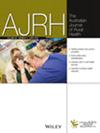The Need for a Rural Surgeon Speciality Pathway in Australia and New Zealand
Abstract
Aims
This commentary aims to address the critical shortage of surgeons in rural Australia and propose the development of a sustainable rural surgical training pathway. By examining current healthcare disparities and workforce challenges, it highlights the need for locally trained and retained rural surgeons to improve health outcomes and reduce healthcare inequities.
Context
Rural Australians experience significant healthcare disparities due to geographical isolation, lower socioeconomic status and limited availability of specialist care. The current model relies heavily on patient transfers to metropolitan centres, which are costly, logistically challenging and unsustainable. Current surgical training programmes offer some rural exposure; however, they remain metropolitan-centric, resulting in fewer surgeons practising in rural areas.
Approach
A dedicated rural surgical training pathway is proposed to address this gap. It would focus on selecting candidates with a demonstrated commitment to rural practice and provide tailored training, mentorship and guaranteed rural placements. Training must align with the specific healthcare needs of rural communities. Additionally, initiatives like the rural health equity strategy and regional training hubs must be supported by structural changes in the selection process to prioritise rural trainees.
Conclusion
Addressing the shortage of rural surgeons is essential to improving healthcare equity. A rural surgical training pathway can aid in long-term retention of surgeons in rural areas. This model supports both healthcare and economic sustainability, aligns with national rural health strategies and fosters stronger community connections. Investing in rural surgical training is a critical step towards reducing healthcare disparities and building a more resilient rural health system.

 求助内容:
求助内容: 应助结果提醒方式:
应助结果提醒方式:


